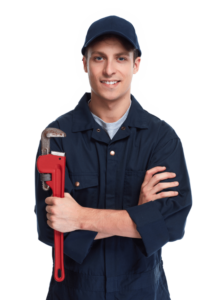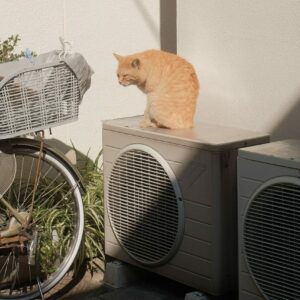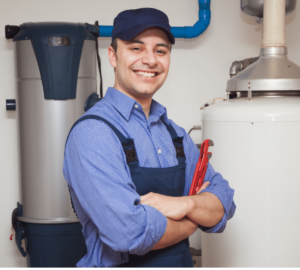PROFESSIONAL HVAC CONTRACTOR
gas lines salt lake city ut
Gas lines play a crucial role in your home’s infrastructure, providing a reliable source of natural gas for various appliances, including heating systems, stoves, water heaters, and more. Properly installed and maintained gas lines are essential for the safety and comfort of your home. In this comprehensive guide, we’ll explore everything you need to know about gas lines, including their installation, maintenance, and safety considerations, with a special focus on underground gas lines.
HVAC CONTRACTOR
gas lines
Understanding Gas Lines
Before diving into the specifics of gas line installation and safety, let’s start with the basics. Gas lines are pipelines that transport natural gas from the source to your home. They consist of a network of pipes, valves, and fittings that distribute gas to various appliances throughout your property.
Types of Lines
There are two main types of lines commonly found in residential properties:
Natural Lines: Natural lines deliver clean-burning natural gas to power appliances such as furnaces, water heaters, stoves, and dryers. Natural gas is an energy-efficient and cost-effective choice for heating and cooking.
Propane Lines: Propane lines are used in homes that are not connected to a natural gas supply. Propane is stored in tanks on the property and delivered through gas lines to fuel appliances.
- FREE DIAGNOSTIC
- FURNACE & AC REPAIR/ REPLACE
- 20+ YEARS EXPERIENCE
Gas Line Installation
Gas line installation is a complex and highly regulated process that should only be performed by licensed professionals. Here are the key steps involved in installing gas lines:
Assessment and Planning: A licensed technician assesses your property to determine the most suitable route for gas line installation. Factors such as distance, load requirements, and safety regulations are considered.
Permit Acquisition: The installation process typically requires permits from local authorities to ensure compliance with safety codes and regulations.
Pipe Installation: High-quality, durable pipes are used for gas line installation. The pipes are carefully sized to accommodate the gas load and pressure requirements.
Connection to Appliances: Lines are connected to individual appliances using approved connectors and fittings. This step requires precision to prevent gas leaks.
Pressure Testing: After installation, the entire gas line system is pressurized and checked for leaks. Any leaks detected are promptly addressed.
Safety Valves and Shut-Offs: Safety valves and shut-off devices are installed to allow for emergency gas line shut-off if needed.

Underground Gas Lines
Underground gas lines are a common choice for gas line installation, especially for properties with strict aesthetic requirements or limited space. They are buried beneath the ground’s surface, reducing visual impact and avoiding obstacles like driveways and walkways.
Key considerations for underground gas lines include:
Material Selection: The choice of materials for underground lines is critical. Corrosion-resistant materials like polyethylene are commonly used to ensure long-term durability.
Depth: Underground lines must be buried at an appropriate depth to protect them from damage. This depth varies depending on local regulations and environmental factors.
Safety Measures: Safety precautions, such as marking the location of underground lines, are essential to prevent accidental damage during excavation or construction work.
Gas Line Safety
Safety is paramount when it comes to gas lines. Gas leaks can be extremely dangerous, posing a risk of fire or explosion. Here are some key safety measures to follow:
Regular Inspections: Schedule regular inspections by a licensed technician to check for gas leaks, corrosion, or other issues.
Gas Leak Detection: Be familiar with the signs of a gas leak, such as a rotten egg odor, hissing sounds, or dead vegetation near lines.
Carbon Monoxide (CO) Detectors: Install CO detectors in your home to detect any leaks that may occur indoors.
Emergency Shut-Off: Know the location of your gas line shut-off valve and how to use it in case of a leak or emergency.
No Open Flames: Never use open flames, such as matches or lighters, to check for gas leaks.
Professional Repairs: If you suspect a gas leak or notice any issues with your gas lines, contact a licensed technician immediately. Do not attempt to fix the issue yourself.
Gas Line Marking: If you’re planning any excavation or construction work on your property, contact your local utility company to mark the location of underground lines to avoid accidental damage.

Gas Line Maintenance
Regular maintenance is crucial to ensure the safety and efficiency of your gas lines. Here are some maintenance tasks you should consider:
Annual Inspections: Schedule an annual inspection by a qualified technician to check for gas leaks, corrosion, and other issues.
Replace Old Pipes: If your gas lines are aging or showing signs of corrosion, consider replacing them with newer, more durable materials.
Clean Vents and Air Intakes: Keep vents and air intakes clear of debris to maintain proper combustion and ventilation.
Check Gas Appliances: Have your gas appliances inspected and serviced regularly to ensure they are functioning correctly and not emitting carbon monoxide.
Test Detectors: Test your carbon monoxide detectors and replace the batteries as needed.
Conclusion
Gas lines are a crucial component of your home’s infrastructure, providing energy for heating, cooking, and more. Proper installation, regular maintenance, and a commitment to safety are essential to ensure that your lines operate efficiently and safely.
At Hillside HVAC, we understand the importance of gas line installation and maintenance. Our team of licensed professionals is here to help you with all your gas line needs, including underground gas lines. With our expertise and commitment to safety, you can trust us to ensure that your gas lines are in top-notch condition, providing reliable service for your home. For all your gas line installation and maintenance needs, contact Hillside HVAC today. Your safety and comfort are our top priorities.
- FREE DIAGNOSTIC
- FURNACE & AC REPAIR/ REPLACE
- 20+ YEARS EXPERIENCE
FREQUENTLY ASKED QUESTIONS
What is the purpose of a gas line in a home?
A gas line in a home is used to supply natural gas or propane to various appliances like stoves, water heaters, furnaces, and fireplaces. It provides a reliable source of energy for heating, cooking, and more.
How do I detect a gas leak in my home?
igns of a gas leak include a distinct sulfur or rotten egg odor, hissing sounds near gas appliances, dead or dying vegetation near buried gas lines, and symptoms like nausea or dizziness. If you suspect a gas leak, leave your home immediately and contact your gas company or emergency services.
When should I have my gas lines inspected or replaced?
Gas lines should be inspected regularly, especially if your home is older or you experience issues like reduced gas pressure, gas odors, or visible corrosion. If damage or deterioration is detected, immediate repair or replacement is essential for safety.
Can I install or repair gas lines myself?
Gas line installation and repair should only be performed by licensed professionals. Handling gas lines without the proper training and equipment can lead to serious safety risks, including gas leaks and explosions. Always rely on qualified technicians for gas line work.
What safety precautions should I follow with gas lines in my home?
To ensure safety with gas lines, install carbon monoxide detectors in your home, know the location of gas shut-off valves, keep the area around gas appliances well-ventilated, and never store flammable materials near gas lines or appliances. Regular professional inspections are also crucial for maintaining safety.

Don't Hesitate to contact us and get the solution
Don’t hesitate to contact Hillside HVAC and get the solution you need for all your heating, ventilation, and air conditioning requirements. Our knowledgeable and friendly team is here to assist you every step of the way. Whether you have questions, need professional advice, or are ready to schedule a service, we are just a phone call away. With our expertise and experience, we can provide customized solutions tailored to your specific needs and budget. From system installations and repairs to routine maintenance, we have the skills and resources to ensure your HVAC system operates at its best. Don’t delay – reach out to Hillside HVAC today and experience the exceptional service and reliable solutions that we are known for.

